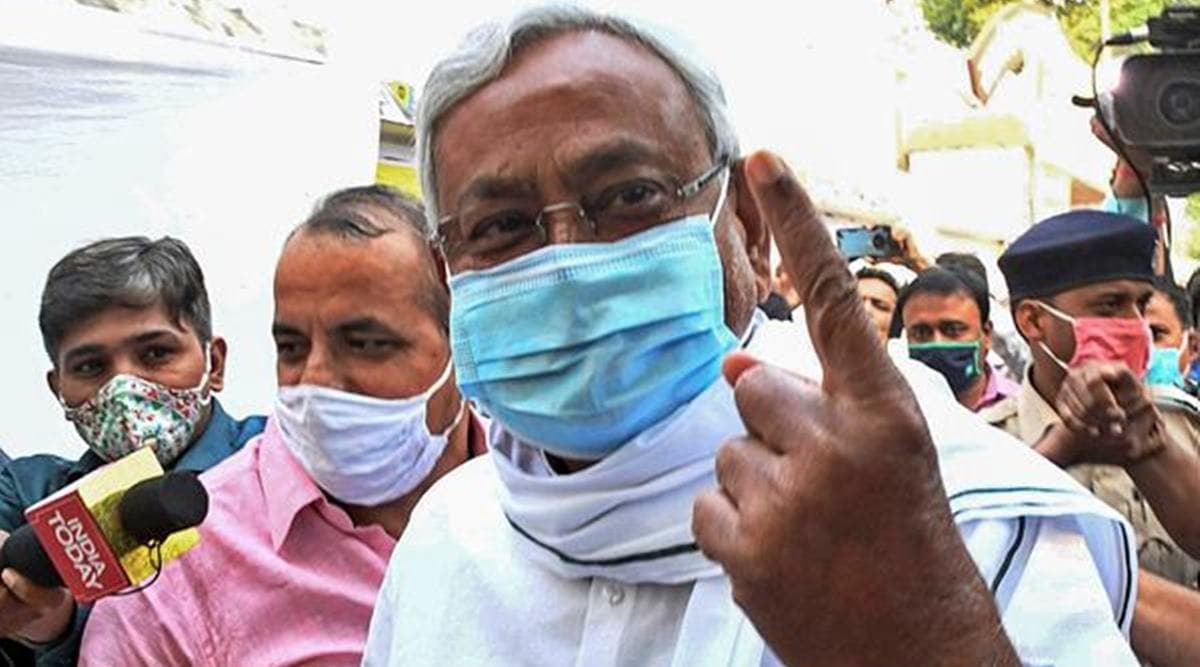 It is to be hoped that the leaders who were placed by the elegance of democracy in a strong position against the ruling coalition in Bihar elections will uphold democratic ideals.
It is to be hoped that the leaders who were placed by the elegance of democracy in a strong position against the ruling coalition in Bihar elections will uphold democratic ideals.Most exit polls, conducted after the final phase of the Bihar assembly elections, have shown the Rashtriya Janata Dal (RJD) led Grand Alliance (Mahagathbandhan) ahead of the ruling National Democratic Alliance (NDA). There is a wave of obvious joy in the leaders/workers of the Mahagathbandhan. Democratic and secular civil society activists, writers, artists, intellectuals plagued by RSS/BJP authoritarianism are also hopeful that the Bihar election results will create some breathing space. The results will come on November 10. Even in the event of the Mahagathbandhan’s victory, there is not going to be any deep blow to the status quo that has taken root in Bihar. It is far from being a blow to “Modishahi” in the country. In 2015, too, the Grand Alliance had won the Bihar Assembly elections. The reality after that, including the 2019 Lok Sabha elections, is for everyone to see. The parties involved in the Mahagathbandhan have to fight against each other in other states and in the 2024 Lok Sabha elections. Despite all this, the Bihar election has a special significance.
This election has taken place under the spectre of the COVID-19 pandemic. The opposition had asked the Election Commission to postpone the election. But the BJP was in favour of elections being held on time. Its strategists, equipped with digital methods of publicity, government tools and economic resources, were assuming a walkover in an election held during a crisis. In fact, the BJP was convinced that it would get more seats than its ally, the JDU. There were several arrows in the BJP’s quiver that were supposed to demolish the opposition: Half the seats in the seat sharing exercise and deploying the son of late Ram Vilas Paswan on the front to further damage Nitish Kumar’s credibility; proclaiming Tejashwi Yadav and Rahul Gandhi as the crown princes of “Jungle Raj”; the prime minister himself referring to the Ram temple in Ayodhya, Section 370 in Kashmir and the Citizenship Act and finally, labelling the leaders of the Grand Alliance parties as supporters of the “tukde-tukde gang”.
But the Mahagathbandhan, which sought to postpone the elections, came in as a tough competitor. Tejashwi Yadav’s public meeting often seemed to draw bigger crowds than the Chief Minister and the Prime Minister. Both Nitish Kumar and the Modi-style of winning elections — built on a mixture of communalism and untenable promises of development — seemed to be in trouble. The strategists panicked and tried to create the atmosphere in their favour by making announcements like giving 19 lakh jobs and distributing free COVID vaccines.
If there is indeed a blow to an alliance that rules both in the state and Centre, it will be due to the inherent strength of Indian democracy. This will be of significance even in the event of the Mahagathbandhan’s defeat.
Needless to say that the great saga of India’s democracy is full of sorrows and irony. Here, whoever comes to power due to the greatness of democracy, is bent on strangling it. The tendency among political parties and their leaders to stick to power by hook or by crook has deeply distorted Indian democracy.
It is to be hoped that the leaders who were placed by the elegance of democracy in a strong position against the ruling coalition in Bihar elections will uphold democratic ideals.
The writer teaches Hindi at Delhi University